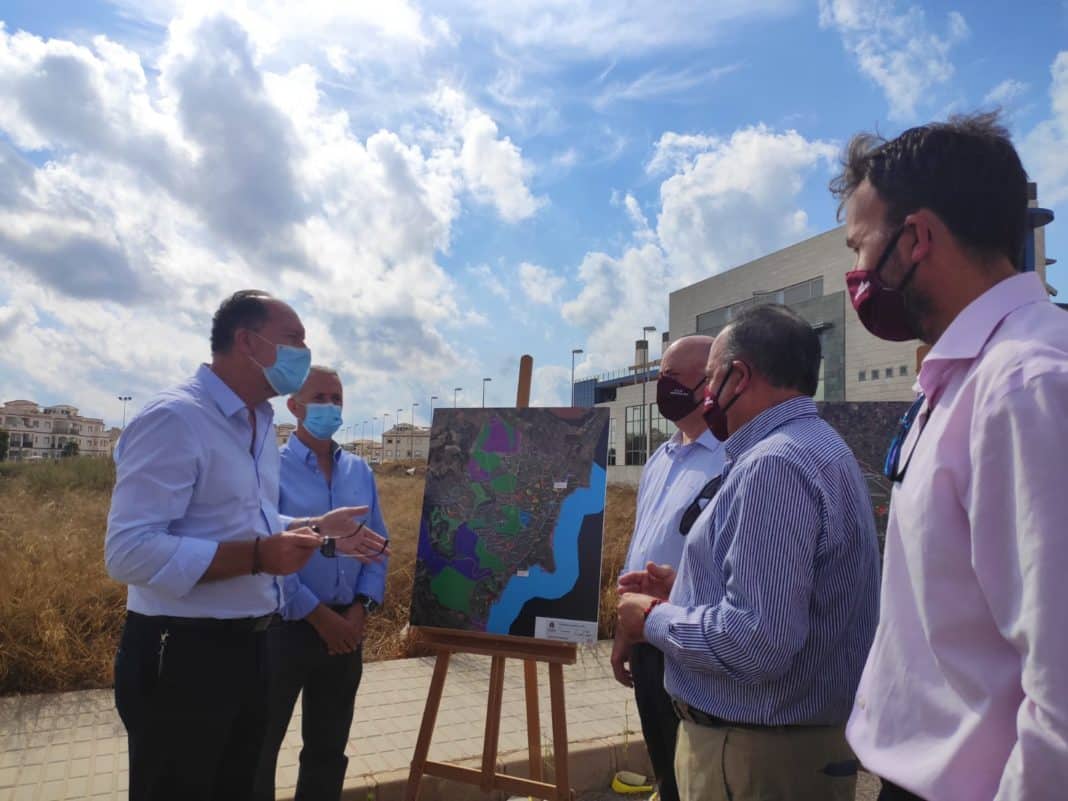In this week’s plenary meeting of the Orihuela town council there were two subjects of interest to Orihuela Costa, contaminated sea water which led to the recent closure of three of Orihuela Costa’s beaches and a motion to open a second health centre.
The discussion at this meeting of the town council of two issues of concern to public health for Orihuela Costa residents and tourists was coincidental but the disappointing outcome of the discussion was unfortunately predictable.
C.L.A.R.O. raised the subject of contaminated sea water and closure of beaches in a citizen’s question. The question began with the statement that 16 years ago immediately after the formation of the party, C.L.A.R.O. denounced the shameful phenomenon of sewage in the streets of Orihuela Costa and since then the situation has only got worse.
The never-ending approval of house building licenses by the town council has led to the exponential increase in the population without a corresponding increase in the provision of basic services.
Parts of the sewage collection system were designed and built in the 1970’s. The “new” sewage treatment plant in Campoamor is 20 years old and has been recognised as inadequate for many years. Due to the pressure of the population especially in the summer regular blowouts and sewage spills occur.
The opening of La Zenia Boulevard 10 years ago has led to an enormous increase in the strain on the inadequate system and resulted in major sewage spills in the roundabout close to the shopping centre and nauseous sewage flowing down to La Zenia beach.
In one major spill 60,000 litres of raw stinking sewage only just avoided reaching the beach thanks to the erection of sand barriers.

The questions raised by C.L.A.R.O. demanded explanations as to how the sea was so contaminated recently that three beaches were closed. How did the sea become contaminated when there were no reports of sewage in the streets leading to or on the three beaches which were closed.
More importantly, C.L.A.R.O. demanded explanations as to how regional government funds of 6.6 million euros made available 4 years ago for improvements in the system have not yet been used.
In reply to the question, no explanation was given as to the cause of the recent incident. As to the failure to put to use funds available for improvements, it was said bureaucratic delays mean that no work could be undertaken until after the summer.
After an important incident so early this summer, we shall see what the rest of the summer will bring.
The motion to open a second health centre in Orihuela Costa, long campaigned for by C.L.A.R.O., was presented by the opposition Popular Party together with the demand for a 24 hour emergency ambulance (SAMU).
The Popular Party argued that a second health centre was necessary given the pressures on the existing centre in Cabo Roig.
Before the change of government in the spring, the Popular Party, when governing in coalition with Ciudadanos, had made land available in Las Ciñuelicas, suitably situated at a distance from Cabo Roig which would facilitate access for the dispersed population of Orihuela Costa. They also pointed out that regional government finance was available.
The motion was approved but, incredibly, opposed by the two governing political parties PSOE and Ciudadanos. Since the motion is not binding there is little hope that the PSOE-Ciudadanos coalition will go ahead with the provision of a much needed second health centre for Orihuela Costa.
The conclusion to be drawn from the discussion of two issue of importance to public health in Orihuela Costa is all too familiar. The governing parties in Orihuela are not concerned.
Delays and excuses are deployed to mask their indifference. The contrast with their concern for the welfare of their voters in Orihuela city is evident. If there had been sewage in the streets of the city 16 years ago the problem would have been solved years ago.
It is no coincidence that a new public health centre in the district of Rabaloche, near the centre of the city, was opened just a few years ago and is functioning impeccably to the benefit of the residents of the city.
Let us hope that Orihuela Costa residents will remember the negative outcome of the discussion of these two issues, and the multitude of other examples of deficiencies in infrastructure and services, when the time comes next May to vote in the local municipal elections.





